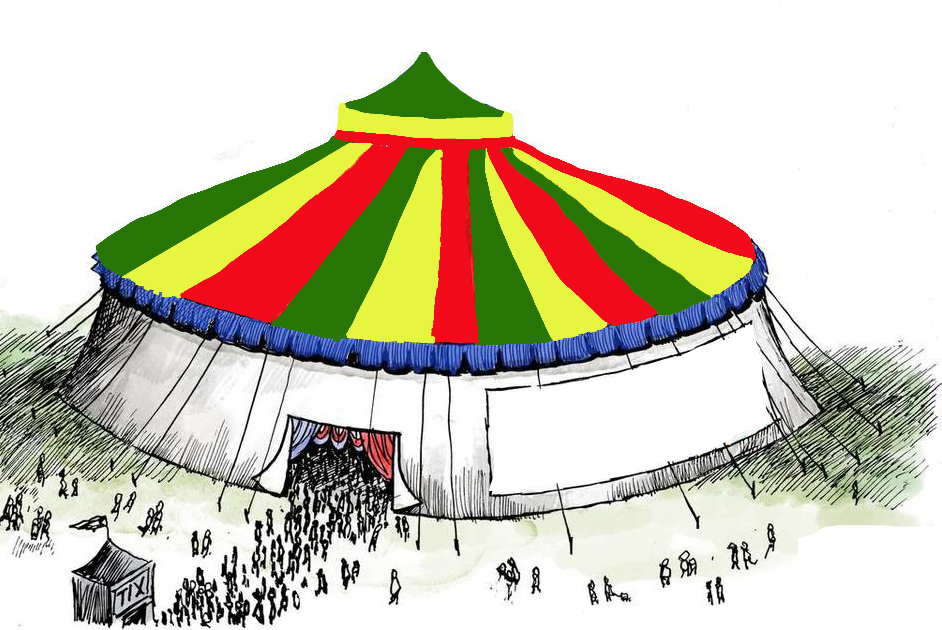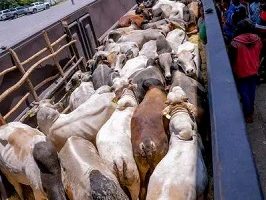
With their number surpassing over a 100, political parties in the country face a rocky road ahead in forming strong coalitions through viable mergers as they grapple with fossilized opinions which the past yet short-lived coalitions already left on the course. Ethiopian politics has seen rare coalitions and mergers. And a 2005 election which was one of the contentious elections in the history of the country saw big opposition coalitions.
There have been few “prominent” parties that disappeared from the scene, for reasons which politicians attribute to ruling’s systematic crackdown, disagreements among opposition leaders and the like. Now that the ruling vows widened political landscape, increased support, politicians put forward the need to form big-tenet parties through mergers and coalitions though the number of parties sees unprecedented rise lately. Since coming to power, Prime Minister Dr. Abiy Ahmed time again and again vowed democratic , free and fair election during his watch while calling on the 100 plus political parties to merge so that bigger and competitive party enter the political race.
The government has put the antiterrorism law, press law and others on revision as part of political open up. Besides, the ruling revealed its readiness to pursue merger and form single national party. In what could be taken as an icebreaker move, the last few weeks have seen creation of big tenet party and a merger which has brought to fore Ethiopian Citizens Party for Social Justice (ECPSJ) and Hibir Ethiopia Party.
Ethiopian Citizens Party for Social Justice (ECPSJ) is also formed from groups and individuals coming from Patriotic Genbot 7, Ethiopian Democratic Party (EDP), All Ethiopian Democratic Party (AEDP), Semayawi Party, New Generation Party (NGP), Gambella Regional Movement (GRM), and Unity for Democracy and Justice (UDJ). Hibir Ethiopia is also the product of the merger of Ethiopian National Transition Council, Ethiopian Public Movement, Tusa Ethiopian Renaissance Democratic Organization, Omo People’s Democratic Union, and South Ethiopia Green Stars Coalition.
The fact that the country’s political parties proved to be increasingly too many has to do with their very inception. Political parties are set up and run by individual interests and lack popular support. And when disagreements appear among the leaders of same parties, the factions once again establish another one.
This led to the incubation of many but fragmented parties, Dr. Assebe Regasa, a political scientist, says. This trend is irrelevant to the political development of the country and makes no significant difference to the political culture. Moreover, the ruling has some sorts of role in cracking down opposition parties either through bribery or other means, he adds. “Unfortunately, unlike their numbers, parties lack diversity in terms of ideology and policy.
Big tenet parties with bigger objectives should be formed for our politics to be matured.” Now it is the time that parties come together and form bigger parties to offer better alternatives to the people of the country. In fact, the people have to push political parties to be united and strong. Parties cannot do business as usual, and this time begs for a more organized and vigilant politicians and elites, according to him. The fact that coalitions or mergers are short-lived in the country is that they are in the first place formed with the will of few individuals, not political ideology or polices. As seen before, coalitions were created to weaken others.
These illtendencies have brought coalitions to premature end, says Prof. Beyene Petros who is Deputy Chairperson of Ethiopian Federal Democratic Forum Medrek, a coalition of three parties. “It took us two years to materialize MEDREK and there had been intense debates among the parties and the people before the coalition brought to life,” he says. So coalitions or mergers should happen in line with the political ideologies or policies, this probably sustains the parties, he adds. It is also true that the ruling has been in a clandestine mission to weaken coalitions or parties. But the very existence of coalitions or mergers hangs over the intraparty democracy and common consensus.
Prof. Beyene also expresses the forums readiness to work with others and join the party so long as they fulfill the requirements or go through legal procedures. Nathenael Feleke is Acting Publication Relations Head of the newly established ECPSJ. He tells The Ethiopian Herald that the formation of the national party aims to bring new political culture in the country. It all begins from the grassroots level. People were consulted and the process was participatory.
“We are trying to build institutional system in the party than trying to relay on few elites or individuals. Democracy begins within the party itself. Parties should not continue to be the personal properties of few individuals. We are working to create a democratic party that stems from the lower levels.” Building democracy is not a onetime campaign rather it is a process fostered by political parties, government civic associations and the society in general.
Democratization is achieved through successive teachings and trainings, he says. “We expect the ruling to play a leading role in further opening up the political landscape and pushing for democratic election, however, democracy requires collective actions from all segments of the society.” Before the merger, there had been intense discussions and consultations among different parties and groups who had different perspectives and policies.
These discussions have been vital to reach common consensus and avoid frictions that may surface after the merger, says Zeleke Redi Public Relations Head of Hibir Party. “For parties to be democratic, they have to be loyal and accountable to the public. The popularity that parties have among the public will define the very nature of the parties.” He adds that the ruling that formed the government should be able to treat each and every party equally.
There had been tendencies of favoring few political parties while ignoring other opposition parties, he adds. Political parties should be formed in a transparent and democratic manner. And our politicians must learn to entertain diverse views and work together despite political differences. Power struggle is what puts parties on rocky path and deepens minor confrontations. The ill thought that parties serve as sources of finance must also come to an end, according to Zeleke.
The Ethiopian Herald May 24/2019
BY DESTA GEBREHIWOT





